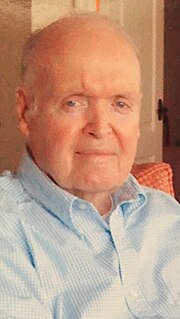
Fundamentalism usually has a religious connotation that indicates unwavering attachment to a set of irreducible beliefs. However, fundamentalism has come to be applied to a tendency among certain groups – mainly, although not exclusively, in religion – that is characterized by a markedly strict literalism as it is applied to certain specific scriptures, dogmas, or ideologies, and a strong sense of the importance of maintaining ingroup and outgroup distinctions, leading to an emphasis on purity and the desire to return to a previous ideal from which advocates believe members have strayed. Rejection of diversity of opinion as applied to these established "fundamentals" and their accepted interpretation within the group often results from this tendency.

Transpersonal psychology, or spiritual psychology, is a sub-field or school of psychology that integrates the spiritual and transcendent aspects of the human experience with the framework of modern psychology. The transpersonal is defined as "experiences in which the sense of identity or self extends beyond (trans) the individual or personal to encompass wider aspects of humankind, life, psyche or cosmos". It has also been defined as "development beyond conventional, personal or individual levels".

A Course in Miracles is a 1976 book by Helen Schucman. The underlying premise is that the greatest "miracle" is the act of simply gaining a full "awareness of love's presence" in one's own life. Schucman claimed that the book had been dictated to her, word for word, via "inner dictation" from Christ. The book is considered to have borrowed from various New Age movement literature.
Theophostic Prayer Ministry was developed in the United States during the mid-1990s by Ed Smith, a Baptist minister.

Richard A. Cohen is an American psychotherapist and author associated with the ex-gay movement. He is a co-founder of Positive Approaches to Healthy Sexuality (PATH), and the past director of the International Healing Foundation. Cohen's early work as an author and therapist was defined by his personal journey: identifying as a homosexual in adolescence, struggling early in his heterosexual marriage, finding personal and marital healing and with his wife, birthing and raising three children. This became the basis for his advocacy, writing and therapeutic practice with men and women with unwanted same-sex attraction, and ultimately all genders, orientations and relationship challenges.
The anti-cult movement are groups that oppose any new religious movement (NRM) that they characterize as a cult. Sociologists David Bromley and Anson Shupe initially defined the ACM in 1981 as a collection of groups embracing brainwashing-theory, but later observed a significant shift in ideology towards pathologizing membership in NRMs. One element within the anti-cult movement, Christian counter-cult organizations, oppose NRMs on theological grounds and distribute information to this effect through church networks and via printed literature.
Daniel A. Helminiak is a Catholic priest, theologian and author in the United States. He is most widely known for his international best-seller What the Bible Really Says about Homosexuality.
Pastoral counseling is a branch of counseling in which psychologically trained ministers, rabbis, priests, imams, and other persons provide therapy services. Pastoral counselors often integrate modern psychological thought and method with traditional religious training in an effort to address psychospiritual issues in addition to the traditional spectrum of counseling services.

Jay Edward Adams was an American, Reformed Christian author who wrote more than 100 books. His books have been translated into 16 languages, and he received his doctorate in preaching.
Christian counseling is distinct from secular counseling. According to the International Association of Biblical Counselors, Biblical counseling "seeks to carefully discover those areas in which a Christian may be disobedient to the principles and commands of Scripture and to help him learn how to lovingly submit to God's will." Christian counselors, therefore, approach psychology through the lens of the Bible. They see the Bible as the source of all truth.
Wayne Edward Oates was an American psychologist and religious educator who coined the word 'workaholic'.

Lawrence J. Crabb, Jr. was a Christian counselor, author, Bible teacher, spiritual director, and seminar speaker. Crabb has written best-selling books and was the founder and director of NewWay Ministries and co-founder of his legacy ministry, Larger Story. He served as a Spiritual Director for the American Association of Christian Counselors and since 1996 has been the Distinguished Scholar-in-Residence of Colorado Christian University.
Nouthetic counseling is a form of evangelical Protestant pastoral counseling based upon conservative evangelical interpretation of the Bible. It repudiates mainstream psychology and psychiatry as humanistic, fundamentally opposed to Christianity, and radically secular. Its viewpoint was originally articulated by Jay E. Adams, in Competent to Counsel (1970) and further books, and has led to the formation of a number of organizations and seminary courses promoting it. The viewpoint is opposed to those seeking to synthesize Christianity with secular psychological thought. Since 1993, the movement has renamed itself biblical counseling to emphasize its central focus on the Bible. The Baker Encyclopedia of Psychology and Counseling states that "The aim of Nouthetic Counseling is to effect change in the counselee by encouraging greater conformity to the principles of Scripture."

Eugene Cullen Kennedy was a psychologist, award-winning writer, public intellectual, syndicated columnist, and professor emeritus of Loyola University Chicago. A laicized Catholic priest and a long-time observer of the Catholic Church, the work of Eugene Cullen Kennedy spans many genres. He has published over 50 books that include 2 biographies, 3 novels, a play, as well as books on psychology, on the Roman Catholic Church and the relationship between psychology and religion. In the early 1970s, inspired by Vatican II, he emerged as a powerful voice for reform and modernization of the Roman Catholic Church.
Derald Wing Sue is a professor of counseling psychology at Columbia University. He has authored several books, including Counseling the Culturally Diverse: Theory and Practice, Overcoming our Racism, and Understanding Abnormal Behavior.

Psychology encompasses a vast domain, and includes many different approaches to the study of mental processes and behavior. Below are the major areas of inquiry that taken together constitute psychology. A comprehensive list of the sub-fields and areas within psychology can be found at the list of psychology topics and list of psychology disciplines.

The Journal of Psychology and Christianity is a peer-reviewed academic journal that is "designed to provide scholarly interchange among Christian professionals in the psychological and pastoral professions." Topics covered include clinical issues, research, theoretical concerns, book reviews, and special theme areas. The editor-in-chief is Peter C. Hill.
J. Harold Ellens was a psychologist and theologian. He was the founding editor of the Journal of Psychology and Christianity and also the Executive Director of the Christian Association for Psychological Studies International from 1974 to 1989. He was one of the key figures in psychological biblical criticism and served as Chair of the Psychology and Biblical Studies Section of the Society of Biblical Literature.
Dr. David G. Benner is an internationally known Canadian depth psychologist, author and wisdom teacher. The central organizing thread of his life and work has been to help people live the human journey in a deeply spiritual way and the spiritual journey in a deeply human way. Drawing on the insights of science, philosophy, the perennial wisdom tradition and forty years of work integrating psychology and spirituality, the focus of his more than thirty books has been the unfolding of the self associated with a journey of awakening and transformation, and the access this provides to wisdom. David is the Founder of Cascadia Living Wisdom School which now operates as Cascadia Living Wisdom. David continues to serve as a wisdom teacher and mentor, guiding people toward wholeness, alignment with the Spirit of Wisdom, and engagement with the world.
Christian psychology is a merger of theology and psychology. It is an aspect of psychology adhering to the religion of Christianity and its teachings of Jesus Christ to explain the human mind and behavior. Christian psychology is a term typically used in reference to Protestant Christian psychotherapists who strive to fully embrace both their religious beliefs and their psychological training in their professional practice. However, a practitioner in Christian psychology would not accept all psychological ideas, especially those that contradicted or defied the existence of God and the scriptures of the Bible.






